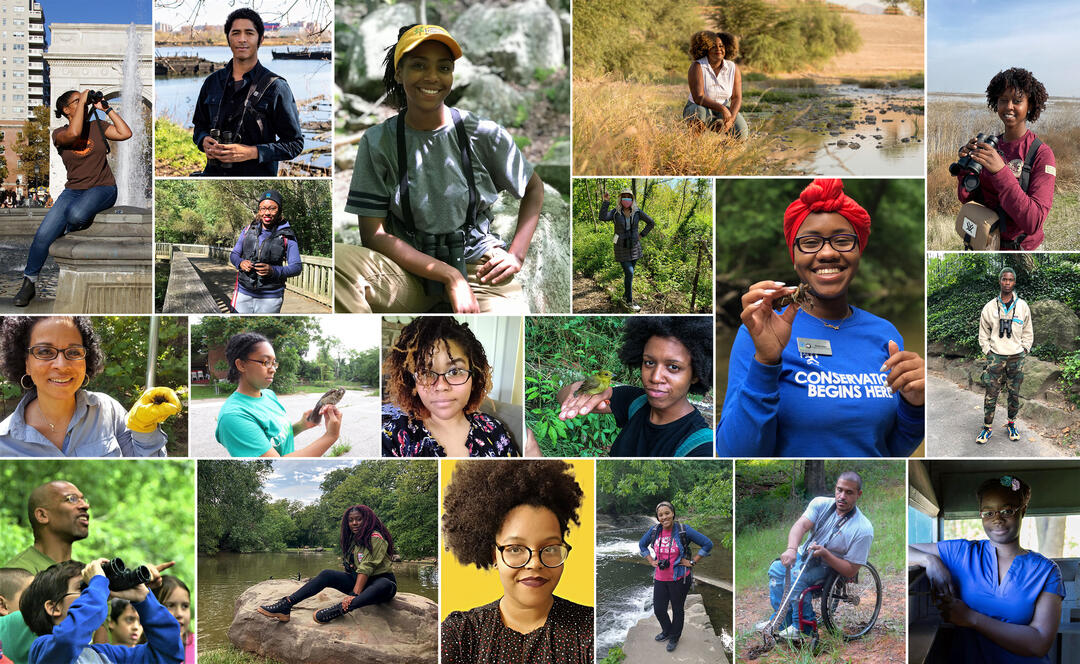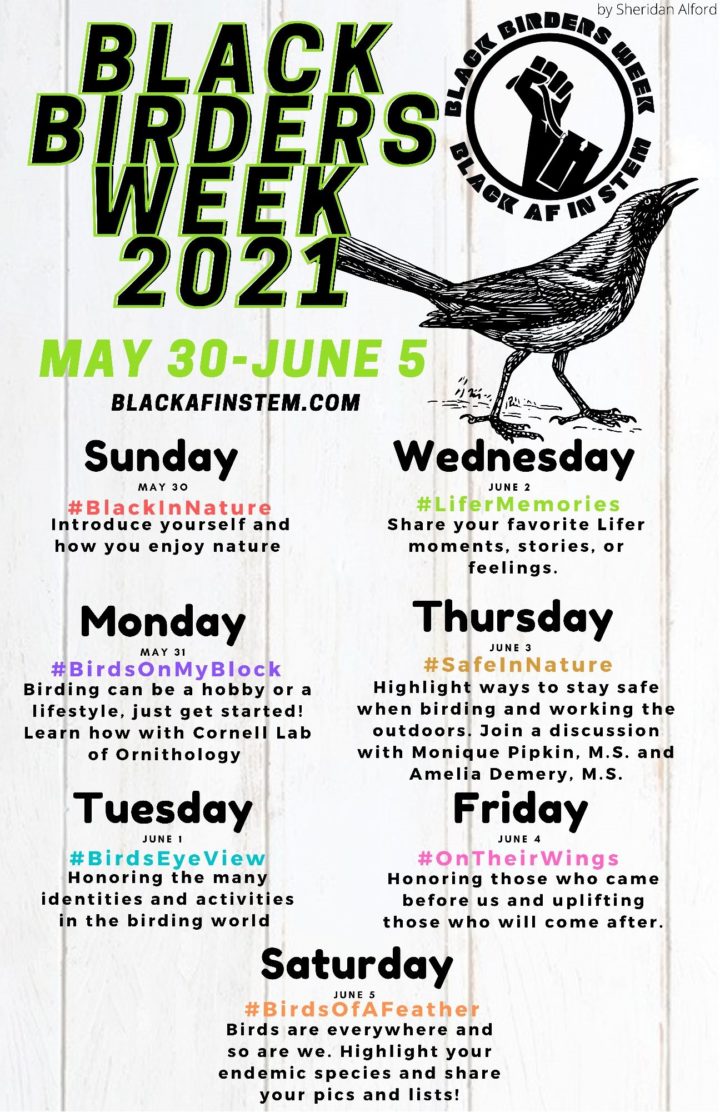Black Birder’s Week

Black Birder’s Week is a week-long series of online and in-person events that highlights Black naturalists, conservationists and birders organized by The BlackAFInSTEM Collective – a collective that “seeks to support, uplift, and amplify Black Science, Technology, Engineering, and Mathematics professionals in natural resources and the environment through professional development, career connection, and community engagement.”

Each day of Black Birder’s Week features its own theme and Twitter hashtag (i.e. #BlackinNature, #BirdsOnMyBlock, #SafeInNature, etc.), allowing participants to connect with one another, post pictures, and ask questions from anywhere in the world.
The third annual Black Birder’s Week will be held May 29-June 4, 2022. You can find this year’s hashtags and speakers on the Black Birder’s Week Schedule 2022
Twitter: @BlackAFInSTEM
Instagram: @BlackAFInSTEM
Facebook: @BlackAFInSTEM
Website: BlackAFInSTEM.com
More information:
Black Birder’s Week 2021 Recap (including past hashtags and speakers) – Black AF in Stem
‘Black Birders Week’ Promotes Diversity and Takes on Racism in the Outdoors – Jillian Mock, Audubon Magazine
Black Birder’s Week 2021 – National Audubon Society
How does Black Birder’s Week fit into land trust’s scope of work?
Black Birder’s Week is an opportunity for Black land trust employees to connect with other Black conservation professionals across the country to exchange stories, resources, and joy! It’s also a great way for non-Black conservation professionals and organizations to learn about racial and/or economic barriers that persist in conservation/the outdoors, hear about exciting conservation projects, network, and support Black colleagues. While not the focus, land trusts may also learn of professionals or Black-led organizations that they wish to partner with in the future.
